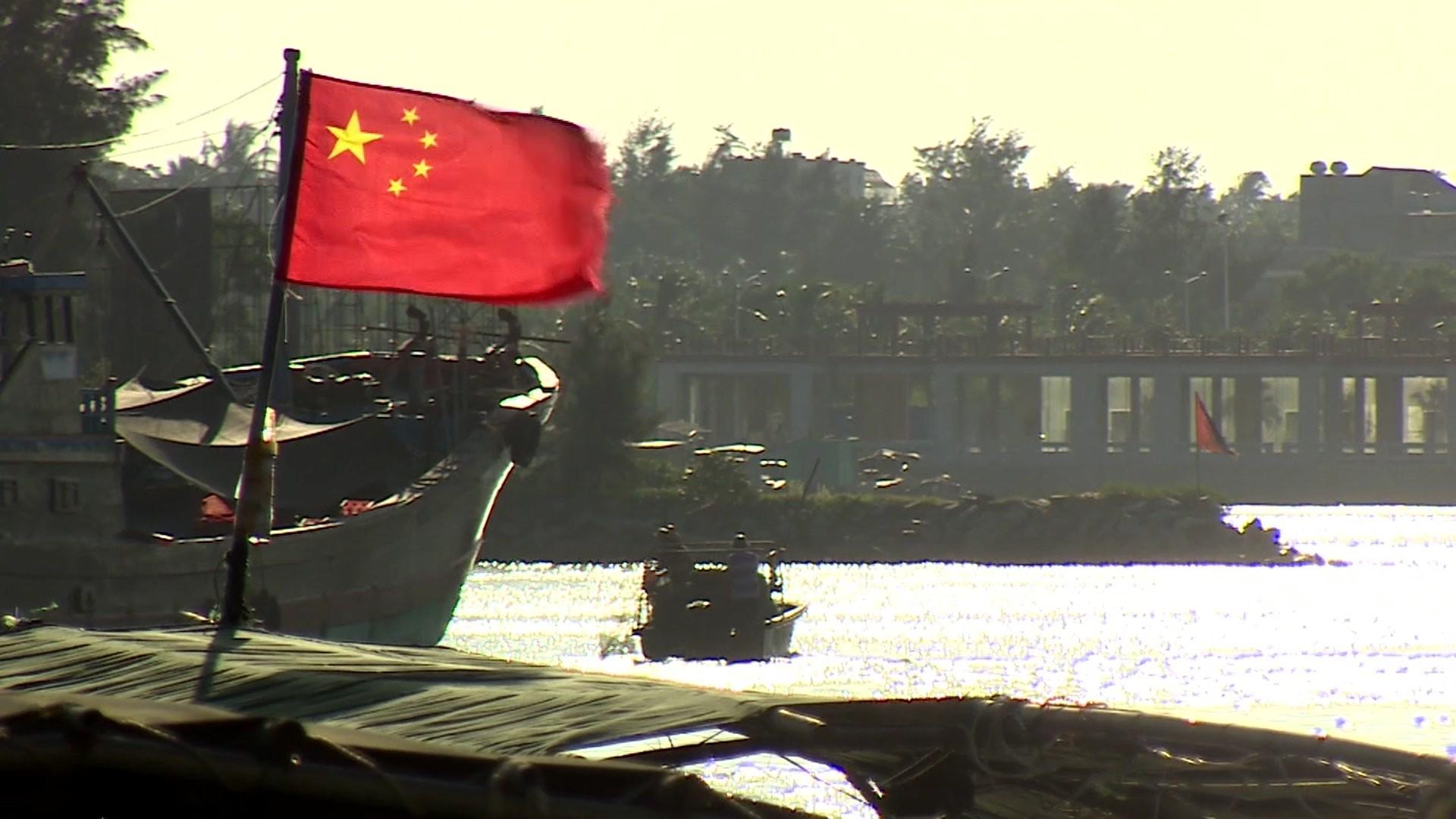South China Sea tribunal: Key points
- Published
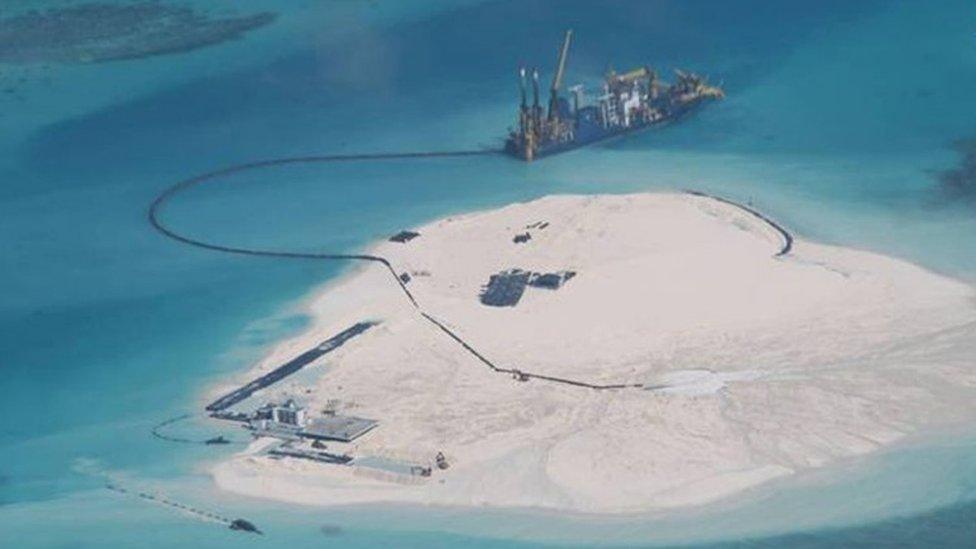
Chinese work to expand and enlarge natural reefs was criticised by the tribunal
An international tribunal has dismissed China's claims to much of the South China Sea.
The Permanent Court of Arbitration in The Hague said there was no evidence that China had exercised exclusive control over the waters or resources historically.
China has said it will ignore the tribunal's findings and defend its interests.
Here are the key points from what the tribunal said, external:
The tribunal was set up to consider the role of historic rights and maritime entitlements in the South China Sea, the status of maritime features, and the lawfulness of actions by China that were alleged by the Philippines to violate the UN convention on the law of the sea
There were no rulings on sovereignty over land territory or delimiting any national boundaries
China refused to accept or participate in the arbitration, which was initiated unilaterally by the Philippines. This was, in itself, no bar to the case proceeding once it was decided the tribunal had jurisdiction and the claim was "well founded in fact and law"
Historic rights and the 'nine-dash line'
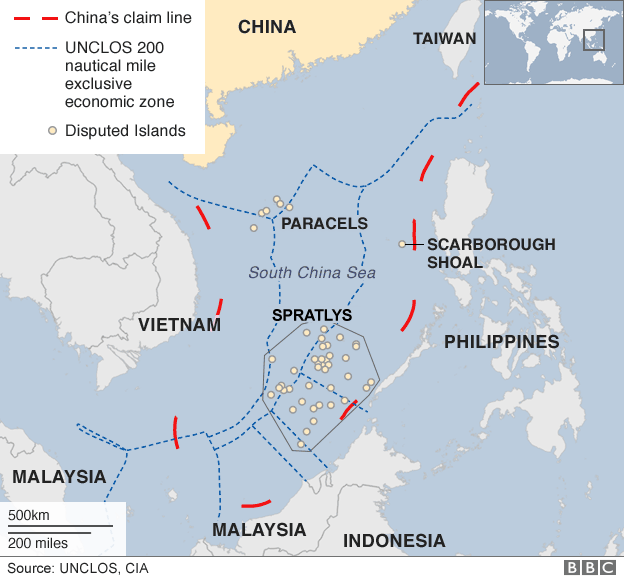
There is no legal basis for China to claim historic rights to resources within the sea areas falling within the "nine-dash line", the tribunal said. (This line marks the territory claimed by China, which stretches hundreds of miles south and east from its most southerly province of Hainan)
Although Chinese navigators and fishermen, as well as those from other countries, have historically made use of the islands in the South China Sea, there is no evidence China has historically exercised exclusive control over the waters or their resources
Status of features
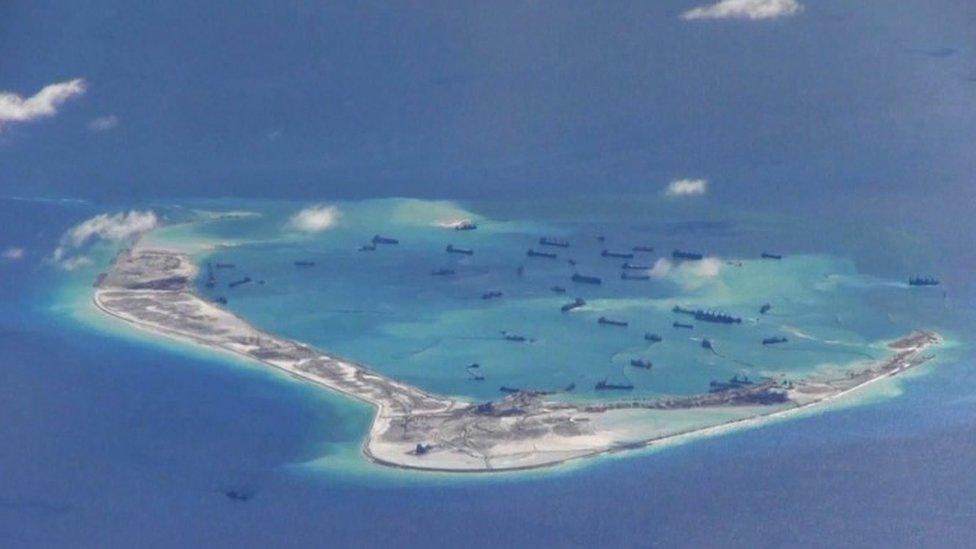
Reefs should be assessed in their "natural condition", not after dredging and construction, the tribunal said
The tribunal considered entitlements to maritime areas based on the features - such as reefs, rocks or islands - that they surround
Reefs (which have to be above water at high tide to generate a territorial sea) have been heavily modified by China's land reclamation and construction work, and the UN convention says features are to be assessed based on their "natural condition"
Therefore the tribunal relied on "historical materials" in evaluating these features, rather than how they look now
The tribunal also looked at the difference between rocks and islands, deciding that "the current presence of official personnel on many of the features is dependent on outside support and not reflective of the capacity of the features". Therefore these features were rocks, which cannot sustain independent human habitation and do not generate maritime entitlements, rather than islands, which can and do
Looking at the history of the Spratly Islands, the tribunal said there had been only transient use by fishermen and guano miners
Therefore, the Spratly Islands are not capable of generating extended maritime zones, either individually or collectively
A further conclusion was that since none of the features claimed by China is capable of generating an "exclusive economic zone" from maritime entitlement, "certain sea areas" are within the exclusive economic zone of the Philippines because "those areas are not overlapped by any possible entitlement of China"
Lawfulness of Chinese actions
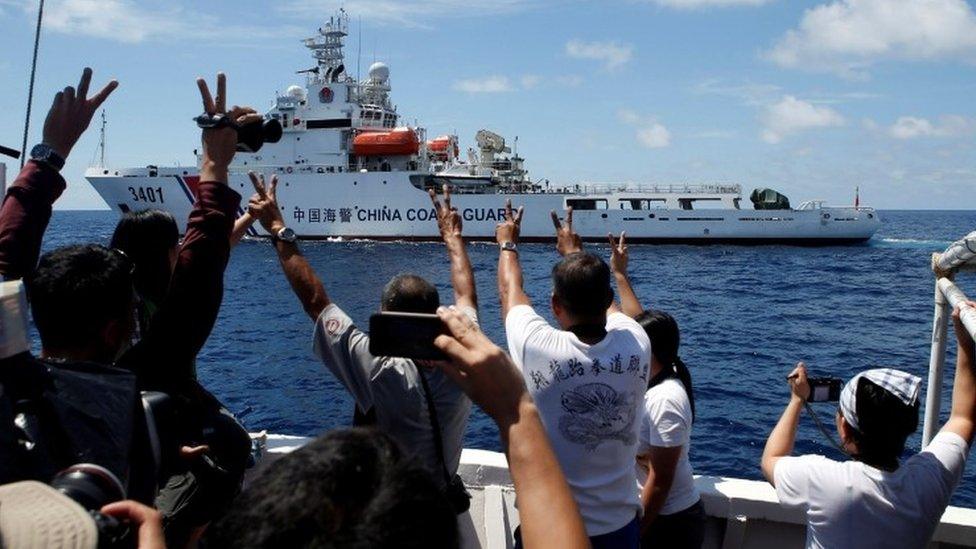
Chinese coastguard vessels have created a "serious risk of collision" with Philippine vessels, the tribunal said
Having decided that some areas of the South China Sea were within the exclusive economic zone of the Philippines, the tribunal found that China had violated the Philippines' sovereign rights there by interfering with fishing and oil exploration, constructing artificial islands and failing to prevent Chinese fishermen from fishing there
Chinese law enforcement vessels have "unlawfully created a serious risk of collision when they physically obstructed Philippine vessels"
Harm to marine environment

China has not stopped harvesting of sea turtles as it should have done, the tribunal said
China has "caused severe harm" to coral reefs and violated its obligation to preserve and protect fragile ecosystems
The Chinese authorities are aware that Chinese fishermen have harvested endangered sea turtles, coral and giant clams "on a substantial scale" and have not fulfilled their obligations to stop this
Aggravation of dispute
China's land reclamation and construction of artificial islands is "incompatible with the obligations on a state during dispute resolution proceedings", in light of its inflicting "irreparable harm to the marine environment", building a large artificial island in the Philippines' exclusive economic zone and destroying evidence of the natural condition of features that were key to the dispute
How China has responded
China called the ruling "ill-founded" and said it would not be bound by it.
In a statement, the Chinese foreign ministry said, external China was the first to have discovered and exploited the South China Sea islands and relevant waters, "thus establishing territorial sovereignty and relevant rights and interests".
- Published12 July 2016
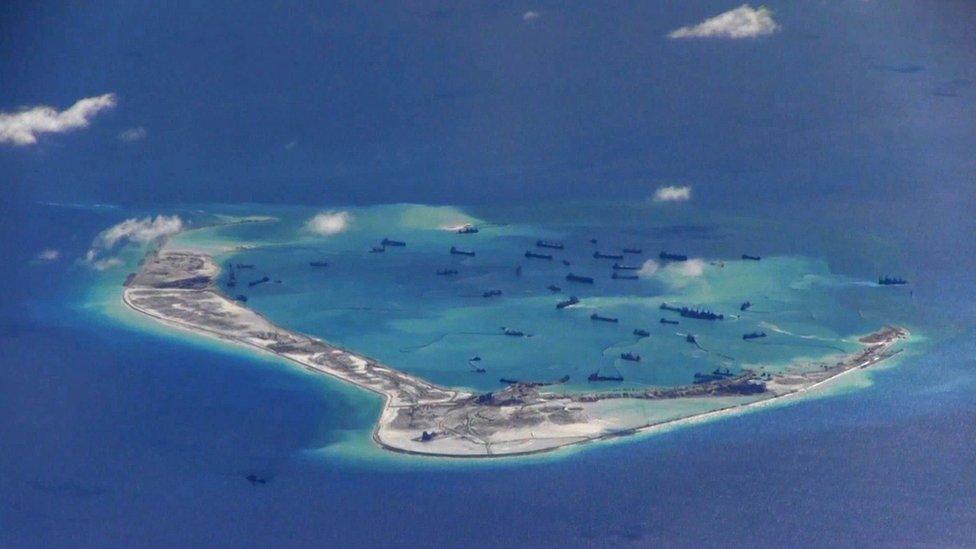
- Published7 July 2023
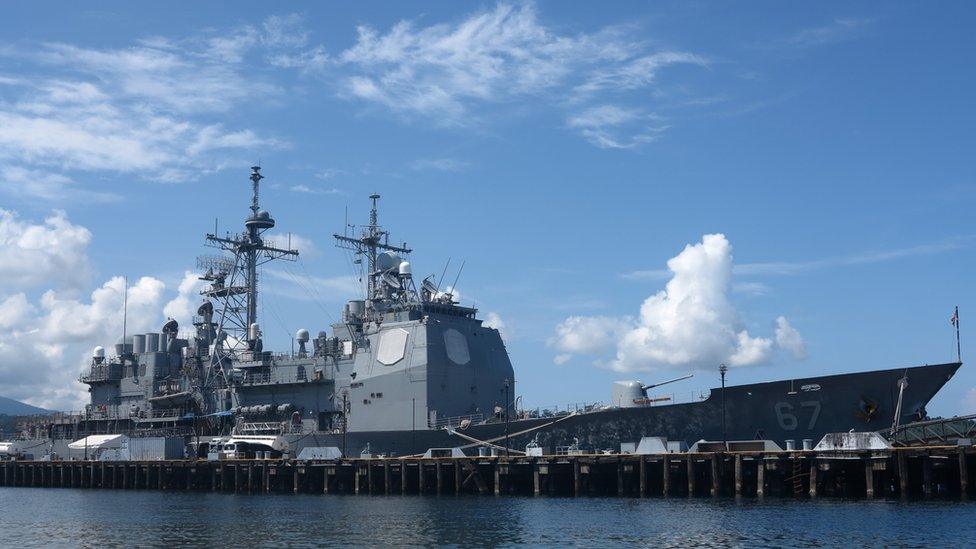
- Published14 December 2015
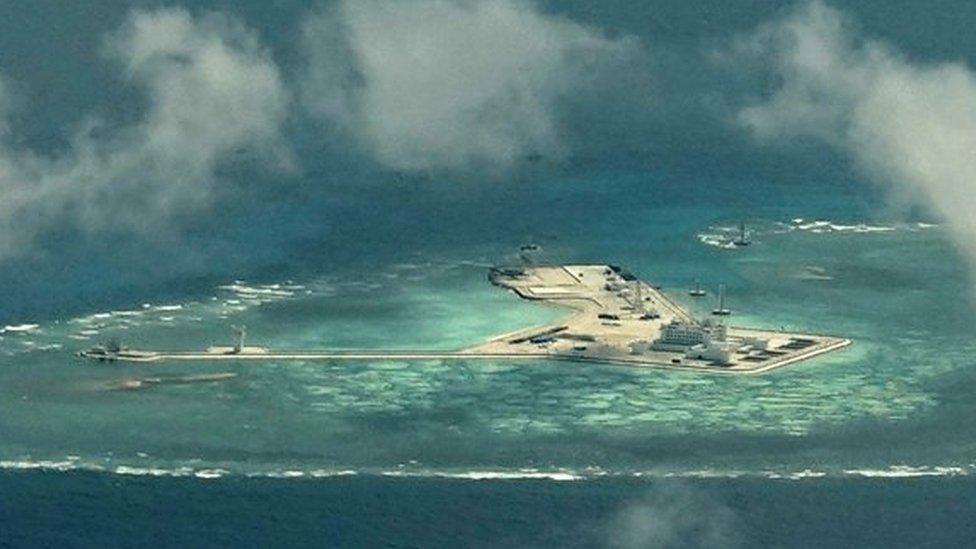
- Published11 July 2016
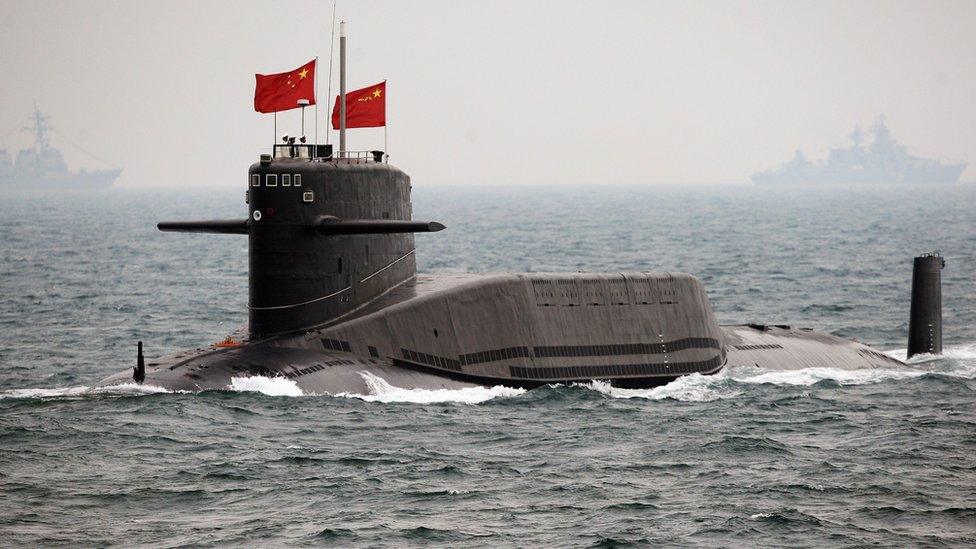
- Published19 June 2016
